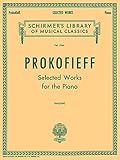All Categories
The Impossible Exile: Stefan Zweig at the End of the World
Share Tweet
*Price and Stocks may change without prior notice
*Packaging of actual item may differ from photo shown
- Electrical items MAY be 110 volts.
- 7 Day Return Policy
- All products are genuine and original








About The Impossible Exile: Stefan Zweig At The End Of
Product Description An original study of exile, told through the biography of Austrian writer Stefan Zweig, the man who inspired The Grand Budapest Hotel By the 1930s, Stefan Zweig had become the most widely translated living author in the world. His novels, short stories, and biographies were so compelling that they became instant best sellers. Zweig was also an intellectual and a lover of all the arts, high and low. Yet after Hitler’s rise to power, this celebrated writer who had dedicated so much energy to promoting international humanism plummeted, in a matter of a few years, into an increasingly isolated exile—from London to Bath to New York City, then Ossining, Rio, and finally Petrópolis—where, in 1942, in a cramped bungalow, he killed himself. The Impossible Exile tells the tragic story of Zweig’s extraordinary rise and fall while it also depicts, with great acumen, the gulf between the world of ideas in Europe and in America, and the consuming struggle of those forced to forsake one for the other. It also reveals how Zweig embodied, through his work, thoughts, and behavior, the end of an era—the implosion of Europe as an ideal of Western civilization. From Booklist *Starred Review* Once renowned, then long forgotten, the forever poignant Viennese writer and humanist Stefan Zweig (1881–1942) is now the focus of a revival. His books are back in print, Wes Anderson pays homage to Zweig in his film, The Grand Budapest Hotel, and Prochnik (In Pursuit of Silence, 2010) presents an exceptionally astute, affecting, and beautifully composed portrait and analysis of Zweig and his cherished and lost world. We learn that Zweig––Jewish, wealthy, cultured, cosmopolitan, and generous––rejected the conventions of his social class as he devoted himself to writing and became a passionate collector and a consummate networker, forging connections among “the intellectual and artistic luminaries of Europe.” Zweig reveled in Viennese café society even as he craved privacy and silence. An international “literary celebrity,” who believed in the unifying power of education and art, Zweig was forced into exile as the Nazis first banned, then burned his books. Adrift in London, New York, and Brazil with Lotte, his much younger second wife, Zweig was spiritually shattered by the Nazi genocide and the “arbitrariness of survival,” gripped by a depthless despair that culminated in the couple’s tragic suicides. Prochnik is so empathically attuned and committed to the full sweep of Zweig’s by turns glimmering and sorrowful story that nothing goes unexamined or unfelt in this brilliant and haunting biography. --Donna Seaman Review “[A] superbly lyrical study…The Impossible Exile is not really—or not just—a biography of Zweig's final years. It is a case study of dislocation, of people who had not only lost a home but who were no longer able to define the meaning of home…Mr. Prochnik gives a very rich sense of what so many exiles experienced during the war…[his] words could not be more resonant.” —Andre Aciman, The Wall Street Journal "Poignant, insightful." —The New Yorker"[A]n intriguing...meditation on Zweig's last years. ...an intellectual feast served as a series of canapes. " —The New York Times Book Review"Subtle, prodigiously researched and enduringly human throughout, The Impossible Exile is a portrait of a man and of his endless flight." —The Economist “The Impossible Exile [is] a gripping, unusually subtle, poignant, and honest study. Prochnik attempts, on the basis of an uncompromising investigation, to clarify the motives that might have driven to suicide an author who still enjoyed a rare popularity.” —Anka Muhlstein, New York Review of Books “[Wes] Anderson told Fresh Air's Terry Gross that until a few years ago, he had never heard of Zweig — and he's not alone. Many moviegoers share Anderson's past ignorance of the man who was once one of the world's most famous and most translated authors. George Prochnik is out to






















